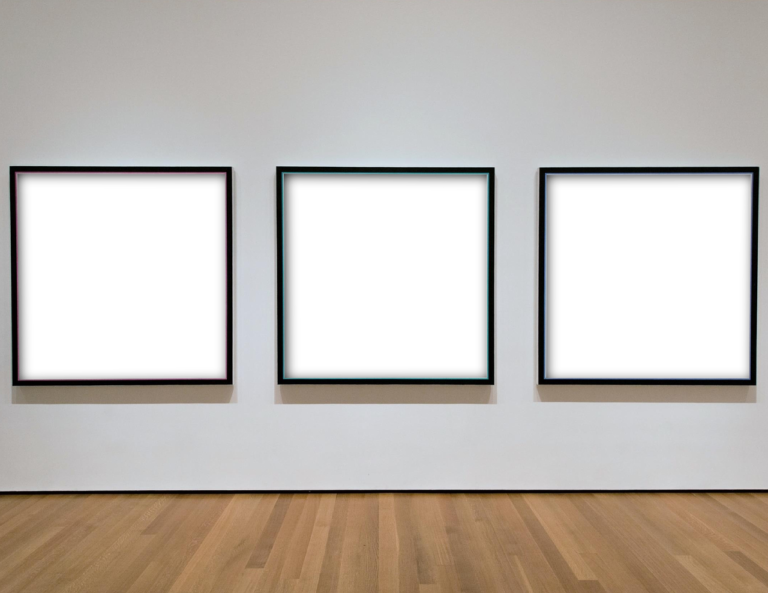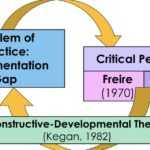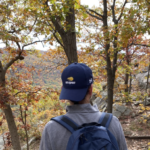On Monday, May 25, 2020, George Floyd was murdered beneath the knee of Minneapolis police officer Derek Chauvin. That same day, Amy Cooper called the police on Christian Cooper in Central Park, perniciously naming and re-naming his blackness, leveraging her own awareness of systemic racism to incite fear and invite violence.
These lynchings – we must use the word – make all too clear that American racism maintains its stronghold, continuing to shape our society and psyche in terrible and deadly ways. As a white American, it is tempting to ascribe blame to the individual perpetrators, to label the officers or Amy as racist people. But the question is not whether we, individually, are racist or antiracist. The question is, in what ways have I been racist? In what ways am I racist right now? And then: what are the concrete ways in which I must change to be more antiracist tomorrow?
For educators, these questions are imperative: for our personhood, for our practice, and for our society. We must answer them well because we interact, daily, with our future generations. We model for them. We mold them. We shape them. For me, this idea – that we shape generations to come – represents educators’ greatest promise and greatest peril. To shape can be to cultivate, to position, to prepare. To shape can also be to structure, to constrain, to assimilate.
Freire writes of this promise and peril: “Education either functions as an instrument which is used to facilitate integration of the younger generation into the logic of the present system and bring about conformity or it becomes the practice of freedom, the means by which men and women deal critically and creatively with reality and discover how to participate in the transformation of their world.” As white educators work to construct our antiracist agendas, we will do well to keep Freire in mind. As the beneficiaries of the “logic of the present system,” we are the most blind it. We are therefore the most likely to protect it – even when we pledge and intend not to.
This is why I believe white educators need theory right now. Yes, we must act urgently. We must inventory our practices, identifying and eliminating those that are racist; researching and adopting those that are antiracist. But, as we do so, we must also interrogate our theories of practice. We must work toward that awareness: toward seeing and understanding the conceptions of education, race, equity, and justice which undergird our practices as they are.
I’m not an expert in that work. I feel so insufficiently practiced, in fact, that I am remiss to write about it. But I am more remiss to lapse into fragile white silence; to not share a little about what I have learned, about why I hope other white educators will view theoretical inquiry as an important component of their antiracist response to this week’s lynchings. I fear that we can, as practitioners, trend too exceptionally toward action: to crave quick fixes, templates, checklists and acronyms. Theory can get a bad rap as not useful, impractical.
But, the truth is, theories always govern our actions – whether we are aware of those theories or not. For me, reading theory has become one of the most useful and practical ways of building my awareness. I regret not reading more, sooner.
For nearly a decade, I threw myself into the deep end of educational practice. As a teacher and then principal serving low-income communities, I adopted college access and persistence as my north-star goals. I wanted all of my students to earn admission to the college of their dreams; to have the requisite academic and personal skills to thrive once on campus; and to work towards those ends in safe, fun, and happy school communities.
For years, I led toward that vision without critically examining it. Then, I revisited Pedagogy of the Oppressed. From there, I read other theorists – including hooks, Jackson, Hammond, and Kendi. As I read, I began to recognize very important insufficiencies in my work. Hard as it was, these theorists helped me to see that those insufficiencies were racist. I had conceived an educational agenda in which justice meant low-income students achieving equivalent outcomes to white, affluent students – within the same pernicious system that birthed the inequity to begin with.
Until I began studying these theories, I could not see my own: theories of “justice as access” rather than “justice as disruption.” The more I read, the more I understood that at the root of my theory lay an inadequate interrogation of my own whiteness. I valorized achieving within the current educational system, because that system had worked for me: a working-class white boy from college-obsessed suburban Long Island, who played the game right and landed at Harvard. But I had not seriously examined how my whiteness had privileged me in playing that game, and how it has continued to privilege me since.
I’m not saying that college access is a bad vision or the wrong vision. It’s part of an educational justice agenda, to be sure. What I am saying is that it was insufficient, and problematic, for a white education leader (me) to advance the logic of the present system without simultaneously advancing informed critique and concrete dismantling of that same system. For all the conversations I had with students, families, and faculty about the importance of college and how to ace the admissions process, I had far fewer about the racist implications of valorizing college as the ultimate goal of education (rather, than say, critical consciousness) in the first place. I should have been inviting those conversations. I should have been working to better understand that complex tension myself. I should have been doing more to elevate the voices and the visions of the communities I served, garnering their perspectives on how we might radically change the status quo – rather than just navigate it.
Because navigating this status quo is not justice. This status quo is racist and violent. This status quo murdered Ahmed Aubrey, Breonna Taylor, George Floyd, and far too many other black souls. This status quo has lynchings as the Monday night news.
As we work to do our part in changing that status quo, white educators need to recognize that our actions are not for us. Our actions, either as instruments of assimilation or disruption, will directly and deeply impact the communities we serve; the generations to come. We must act not only with urgency, but also with consciousness and care.
Theory helps to elevate consciousness. This is why we need theory as much as we need practice. And this, of course, is Freire’s concept of the praxis: “reflection and action upon the world in order to transform it.” If we try to change our antiracist practices without interrogating our racist theories (especially our implicit ones), we are likely to extend, to reproduce, and to create the racist actions we seek to upend. And we will not be the ones who suffer for it.
So, white educators: as we work to become more antiracist, we cannot dismiss theory as impractical. And we cannot blame someone else for not bringing theory to us. It’s our job to find it. To read Freire. To read hooks, Ladson-Billings, Jackson, Hammond, Love, Kendi. And – this is key – we cannot expect someone else to make these crucial ideas practical enough for our use. That work is our work. It’s on us to study theory with an inward eye; such that we see ourselves differently; such that we see the world differently; such that we act upon it differently. If we are to shape future generations toward an antiracist, just future, we must first see – and reshape – our own present theories: of race, of justice, of teaching, and of self.



